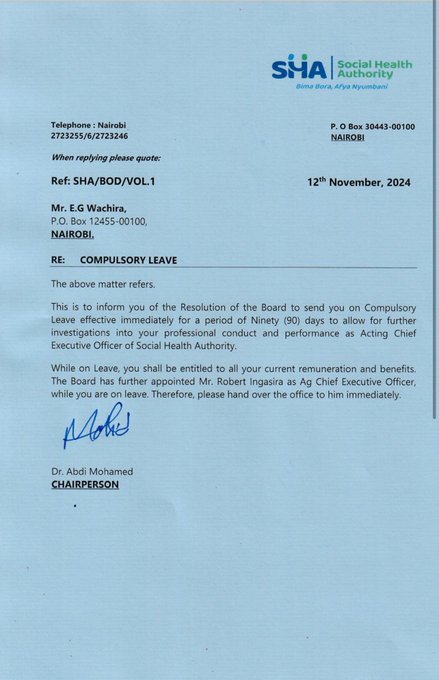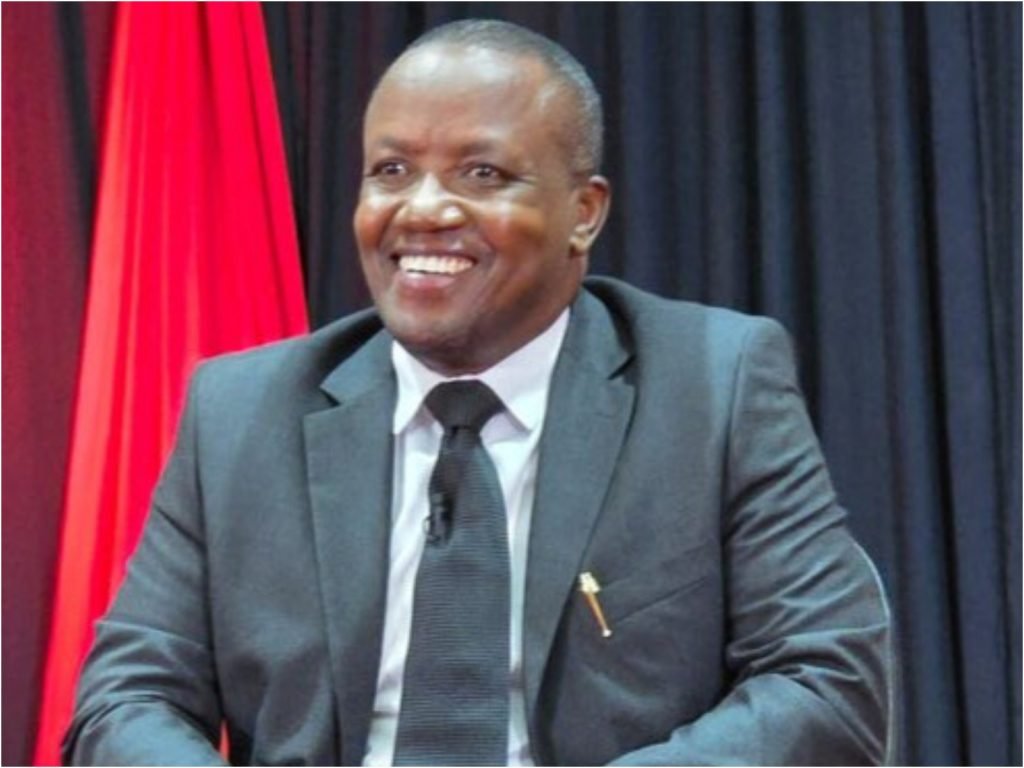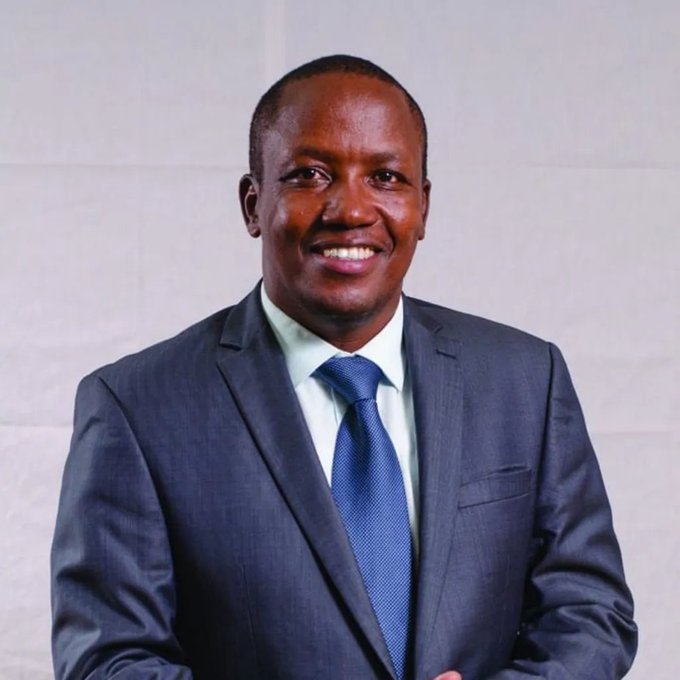The board of the Social Health Authority (SHA) has removed CEO Elijah Wachira amidst a turbulent transition period from the National Health Insurance Fund (NHIF) to the newly established SHA. The board appointed Robert Ingasira, Director of Financial Services, as the acting CEO.
This leadership change, the second in just two months, underscores the challenges SHA faces in managing financial and operational obstacles as it seeks to fulfill its mandate of providing Universal Health Coverage (UHC).
Allegations and Denials from the Ousted CEO
Elijah Wachira, appointed as NHIF’s CEO in October last year following a competitive selection process, denies the allegations levied against him.

The SHA board has accused Wachira of financial mismanagement, including diverting Sh1.6 billion earmarked for settling debts owed to public healthcare facilities. According to the board, this diversion of funds has contributed to a backlog of payments to public hospitals, placing the government’s healthcare delivery at risk.
Wachira, a seasoned insurance executive who previously served as the Managing Director of CIC General, has rejected all accusations, asserting that he is unaware of any diverted funds. SHA board chairman Abdi Mohamed has yet to respond to inquiries from the Star regarding these claims.

Controversy Over Prioritization of Private Hospitals
Another point of contention is Wachira’s alleged prioritization of payments to private hospitals over public facilities. The board contends that this focus on private providers has come at the expense of public hospitals, forcing many to request cash payments from patients due to delayed reimbursements. According to recent SHA data, private health facilities are indeed leading in claim amounts and service authorizations, reflecting an ongoing trend from the NHIF era.
Last month, SHA enrolled approximately 4,583 government-owned health facilities, 2,500 private facilities, and 548 faith-based organizations. Despite public hospitals outnumbering private facilities, private providers accounted for 85,700 service authorizations, surpassing the 78,100 authorized for government facilities. This disparity has sparked debate, particularly as private facilities also made claims totaling Sh1.2 billion, compared to Sh1.1 billion from government facilities.
Rising Pending Bills and Financial Strain
The board’s minutes from a meeting on Tuesday highlight concerns about increasing pending bills that have strained SHA’s financial capacity. According to these records, roughly Sh19 billion in pending bills were inherited during the NHIF transition. While SHA claims to have cleared 50% of this amount within just over a month, this achievement has been overshadowed by concerns that Wachira’s management decisions might hinder the authority’s goal of UHC by jeopardizing funds earmarked for debt relief.
The SHA board emphasized that reducing these outstanding debts is crucial to ensuring timely disbursements and maintaining trust among healthcare providers. Delayed payments to hospitals have created service backlogs, negatively impacting the quality and accessibility of healthcare services for patients, particularly those reliant on public health facilities.

SHA’s Troubled Leadership and Ongoing Transition
This latest leadership shift marks the second major change at SHA since its establishment. Just before SHA was launched, former chairman Dr. Timothy Olweny was removed, signaling internal unrest within the fledgling organization. SHA’s mandate to provide UHC is already hampered by the financial and operational hurdles it has encountered during this transition from NHIF.
In an official statement, former NHIF Board Chairman Michael Kamau expressed confidence in the new management team, describing them as highly experienced and capable of navigating SHA’s challenging mandate.
However, with two leadership changes in as many months, some stakeholders worry about SHA’s ability to sustain stability and focus on achieving UHC amidst ongoing turbulence.
Analyzing Private vs. Public Healthcare Claims
A recent analysis by the Star highlighted that private healthcare providers are filing more claims and receiving faster payments from SHA than their public counterparts.
This trend, a continuation from the NHIF’s practices, has drawn criticism, with many arguing that it reflects a broader systemic imbalance in how SHA prioritizes healthcare providers. The SHA board’s appointment of Ingasira as the acting CEO aims to address this bias and to ensure that funds are allocated more equitably.

Looking Ahead: SHA’s Path to Stability and Accountability
SHA’s transition remains fraught with difficulties, and the replacement of Wachira with Ingasira as acting CEO signals the board’s commitment to accountability and reform. As investigations continue, SHA’s management faces the critical task of balancing support for both public and private healthcare providers while addressing operational inefficiencies.
For many, the success of SHA will depend on its ability to maintain transparency, resolve pending bills, and equitably distribute resources to meet the healthcare needs of all Kenyans.
SHA’s goal of UHC is ambitious, but stakeholders hope that with strong leadership and a more equitable distribution of resources, the organization can overcome its challenges and move closer to achieving comprehensive healthcare coverage for all.


















